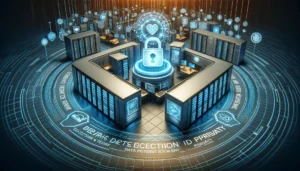How to Protect Yourself from Cyber Attacks
Cyber attacks are a growing threat, and it’s important to take steps to protect yourself from them. Here are some tips on how to do just that:
- Use strong passwords and keep them up to date.
- Be careful about what information you share online.
- Use a VPN when you’re using public Wi-Fi.
- Install security software on your devices and keep it up to date.
- Be aware of the latest cyber threats and how to protect yourself from them.
By following these tips, you can help to protect yourself from cyber attacks and keep your personal information safe.
What is Cybersecurity?
Cybersecurity is the practice of protecting computers, networks, and data from unauthorized access, use, or disruption. It’s also known as information security or information assurance.
Cybersecurity is important because it helps to protect people, organizations, and governments from a variety of cyber threats, including:
- Data breaches
- Viruses and malware
- Phishing and social engineering
- DDoS attacks
- Ransomware
By implementing effective cybersecurity measures, organizations can protect themselves from these threats and reduce the risk of data breaches, financial loss, and reputation damage.
Some of the most important cybersecurity best practices include:
- Using strong passwords
- Keeping software up to date
- Using a firewall
- Backing up data regularly
- Educating employees about cybersecurity
By following these best practices, organizations can significantly improve their cybersecurity posture and protect themselves from a variety of cyber threats.
Why is Cybersecurity Important?
Cybersecurity is important for a number of reasons. First, it protects the confidentiality, integrity, and availability of data. Confidentiality means that data is only accessible by authorized users. Integrity means that data is not modified without authorization. Availability means that data is accessible when needed.
Second, cybersecurity protects against cyber threats, such as malware, phishing, and ransomware. Malware is software that is designed to damage or disrupt a computer system. Phishing is a type of social engineering attack that attempts to trick users into giving up their personal information. Ransomware is a type of malware that encrypts files and demands a ransom payment to decrypt them.
Third, cybersecurity helps to protect businesses from financial losses. Cyber attacks can lead to lost productivity, data breaches, and stolen intellectual property. The cost of a data breach can be significant, and can even lead to a company’s collapse.
Finally, cybersecurity is important for protecting national security. Cyber attacks can be used to disrupt critical infrastructure, steal sensitive information, and launch cyberattacks against other countries. Protecting cybersecurity is essential for maintaining national security.
Cybersecurity Risks
Cybersecurity risks are the potential threats that can be exploited by cyber attackers to gain unauthorized access to systems, data, or networks. These risks can range from minor inconveniences to major disasters, and they can have a significant impact on businesses, organizations, and individuals.
Some of the most common cybersecurity risks include:
- Malware: Malicious software that can be used to damage or disrupt systems, steal data, or spy on users.
- Phishing: A type of social engineering attack that uses email or other communications to trick users into giving up their personal information or clicking on a malicious link.
- Ransomware: A type of malware that encrypts files and demands a ransom payment to decrypt them.
- DDoS attacks: Distributed denial-of-service attacks that flood a system with traffic, making it inaccessible to legitimate users.
- Social engineering: A type of attack that relies on human interaction to trick users into giving up their personal information or taking actions that they would not otherwise take.
It is important to be aware of these risks and to take steps to protect yourself from them. By following good cybersecurity practices, you can help to keep your systems, data, and personal information safe from attack.
Cybersecurity Best Practices
Here are some best practices for protecting yourself from cyber attacks:
- Use strong passwords and keep them updated regularly.
- Be careful about what information you share online.
- Use a firewall and antivirus software.
- Keep your software up to date.
- Be aware of phishing scams and other social engineering attacks.
- Back up your data regularly.
- Educate yourself about cybersecurity risks.
By following these best practices, you can help to protect yourself from cyber attacks and keep your data safe.
Protecting Yourself from Cyber-Attacks
There are a number of things you can do to protect yourself from cyber-attacks. Here are a few tips:
- Use strong passwords and keep them up to date.
- Be careful about what information you share online.
- Use a firewall and antivirus software.
- Beware of phishing scams.
- Keep your software up to date.
- Back up your data regularly.
For more information on how to protect yourself from cyber-attacks, please visit the following resources:
- How to Protect Yourself from Cyber Threats
- Protecting Your Business from Cybersecurity Threats
- Protecting Your Privacy Online
Cybersecurity Laws and Regulations
There are a number of cybersecurity laws and regulations that organizations need to be aware of and comply with. These laws and regulations are designed to protect data, privacy, and intellectual property. Some of the key cybersecurity laws and regulations include:
* The Gramm-Leach-Bliley Act (GLBA)
* The Health Insurance Portability and Accountability Act (HIPAA)
* The Sarbanes-Oxley Act (SOX)
* The Federal Trade Commission Act (FTC Act)
* The Children’s Online Privacy Protection Act (COPPA)
* The Cybersecurity Act of 2015
* The Data Protection Act of 2018
Organizations that fail to comply with these laws and regulations can face significant fines and penalties. It is important for organizations to stay up-to-date on the latest cybersecurity laws and regulations so that they can take the necessary steps to protect themselves.
Cybersecurity Incident Response
Cybersecurity incident response is the process of identifying, containing, and mitigating the effects of a cybersecurity incident. It includes the following steps:
- Detection: The first step in incident response is to detect that an incident has occurred. This can be done through a variety of methods, such as monitoring network traffic, scanning for vulnerabilities, and reviewing logs.
- Containment: Once an incident has been detected, it is important to contain it as quickly as possible to prevent it from spreading. This may involve isolating the affected system from the rest of the network, removing malicious software, and changing passwords.
- Mitigation: The goal of mitigation is to reduce the impact of an incident. This may involve restoring data from backups, implementing security patches, and educating users about how to protect themselves from future attacks.
- Investigation: The final step in incident response is to investigate the incident to determine how it occurred and what can be done to prevent it from happening again. This may involve reviewing logs, interviewing affected users, and performing forensic analysis.
Cybersecurity incident response is an important part of any organization’s overall cybersecurity strategy. By having a plan in place for how to respond to incidents, organizations can reduce the impact of an attack and protect their data and systems.</p
Cybersecurity Careers
The cybersecurity field is growing rapidly, and there is a high demand for qualified professionals. There are many different types of cybersecurity careers, from entry-level positions to senior-level positions. Some of the most common cybersecurity careers include:
- Cybersecurity Analyst
- Cybersecurity Engineer
- Cybersecurity Architect
- Cybersecurity Researcher
- Cybersecurity Consultant
Cybersecurity professionals typically need a strong background in computer science, mathematics, and/or engineering. They also need to be able to think critically and solve problems. In addition, cybersecurity professionals need to be able to stay up-to-date on the latest threats and trends.
The cybersecurity field is a challenging and rewarding one. It offers the opportunity to make a real difference in the world. If you are interested in a career in cybersecurity, there are many resources available to help you get started.
Here are a few resources to help you learn more about cybersecurity careers:
- Cyberseek: This website provides information on cybersecurity careers, education, and training.
- SANS Institute: This organization offers cybersecurity training and certification programs.
- Cybrary: This website offers free cybersecurity training courses.
If you are interested in a career in cybersecurity, I encourage you to learn more about the field and to pursue the necessary education and training. You can make a real difference in the world by helping to protect people and organizations from cyber threats.
Ready to elevate your project with expert guidance? Don’t wait to transform your ideas into reality. Reach out to Creataco today for personalized solutions and exceptional service. Contact us now and let’s create something amazing together!




